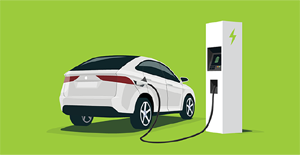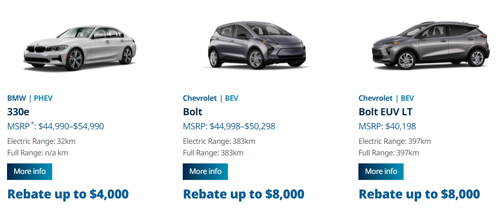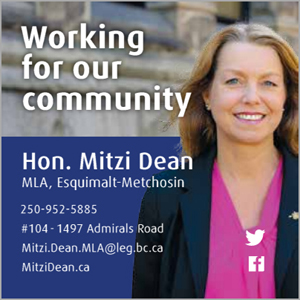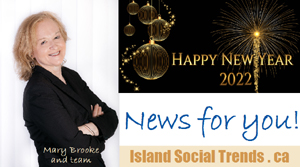Sunday January 9, 2022 | VICTORIA, BC
by Mary P Brooke | Island Social Trends
Community groups and local governments throughout the province can receive funding through the Community Outreach Incentive Program (COIP) to educate and encourage people to switch to electric vehicles (EVs).
The announcement was made on Friday January 7 by the Ministry of Energy, Mines and Low Carbon Innovation.
Raising awareness:
“We’re helping to raise awareness about the many benefits of EVs in communities across B.C. As more and more people make the switch to EVs in all parts of the province, everyone benefits from cleaner air and less pollution,” said Bruce Ralston, Minister of Energy, Mines and Low Carbon Innovation. “And by reducing carbon emissions and using clean energy to get around every day, we’re working toward our CleanBC plan to build a stronger, brighter future.”
Funds go to organizations:
The Province is providing $118,000 through COIP under a partnership with the Emotive outreach and awareness campaign to support B.C. communities, organizations and local governments delivering local and regional EV-awareness campaigns that include video production, EV events and demonstrations.
This year, COIP funding was also provided to the Clean Transportation Targets and Planning (CTTP) pilot that supports target setting, policy planning and implementation to encourage the transition to EVs as well as other forms of transportation, such as walking, cycling and public transit.
Encouraging the shift:
“More people than ever before are discovering the benefits of switching to electric vehicles in communities across the province,” said George Heyman, Minister of Environment and Climate Change Strategy. “With CleanBC, our government is working hard to support people with affordable and clean transportation options that work for them.”
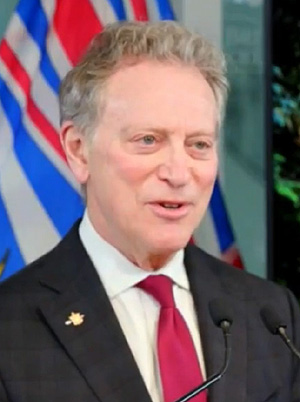
Rebate for individuals to purchase EV’s in BC:
BC says you can save up to $8,000 upon the purchase of an electric vehicle. These are the electric vehicle types:
- BEV – Battery Electric Vehicle
- PHEV – Plug-in Hybrid EV
- ER-EV – Extended Range EV
Here’s the breakdown of the incentive amounts for the purchase or lease of each vehicle type (according to a page within the BC Hydro website):
- $3,000 for purchase or lease of a new battery electric vehicle (BEV/EV).
- $1,500 for purchase or lease of a plug-in hybrid electric vehicle (PHEV).
- $3,000 for purchase or lease of a hydrogen fuel-cell vehicle (FCEV).
In order to encourage the adoption of ZEVs by Canadians and Canadian businesses, the Government of Canada launched the Incentives for Zero-Emission Vehicles (iZEV) Program in May 2019.
A ZEV is a vehicle that has the potential to produce no tailpipe emissions. They can still have a conventional internal combustion engine, but must also be able to operate without using it. The program considers the following vehicles to be ZEVs:
- battery-electric
- plug-in hybrid electric
- hydrogen fuel cell
BC Hydro rebate:
BC Hydro offers a Home EV charger rebate up to $350. If you’ve recently purchased and installed an EV charger in your single-family home, you could be eligible for a rebate from the Government of B.C., administered by BC Hydro and FortisBC. The rebate offer is up to 50% of purchase and installation costs of eligible, new Level 2 charging equipment, to a maximum of $350. Rebate amount examples:
- If your eligible costs were $700 or more, your maximum rebate amount is $350.
- If your eligible costs were $400, your maximum rebate amount is $200.
Funding last year:
This round of funding through COIP is supporting several communities throughout B.C., including $13,000 to the Musqueam Indian Band to create a series of videos promoting the health and environmental benefits of EVs by showcasing Musqueam residents and staff sharing their EV experiences. Funding is also supporting research and planning for future electrification of the Musqueam vehicle fleet.
“Experiencing the adverse effects of climate change in recent years has made reducing on-reserve CO2 emissions a priority for Musqueam membership and administration,” said Ehsan Haghi, project lead and community energy specialist, Musqueam Indian Band. “The COIP funding enables the band to provide information to the membership about the cost of purchasing an electric car, the financial and environmental benefits of switching to an electric car and critical factors to consider when buying an electric car.”
The Resort Municipality of Whistler and District of Squamish received $9,960 to create videos that profile EV drivers in the commuter workforce in the Sea-to-Sky region and host a webinar to educate people about the advantages of EV ownership. COIP funding has gone toward several videos published on Emotive’s social media channels that feature local stories about the benefits of using an EV, such as savings on fuel costs and breaking down perceived barriers of EV ownership.
In addition, the Resort Municipality of Whistler received $15,040 under the CTTP pilot to develop an e-mobility strategy for EVs, e-bikes and other electric mobility devices. They will set targets for adoption and infrastructure that align with the municipality’s goal of achieving 50% of vehicle kilometres travelled by EVs by 2030.
The COIP and CTTP pilot align with the goals and targets in the Province’s recently released CleanBC Roadmap to 2030, which details a range of expanded actions to accelerate the transition to a net-zero future and achieve B.C.’s legislated greenhouse gas emissions targets. These actions include strengthening the Zero-Emissions Vehicles (ZEV) Act to require 26% of light-duty vehicle sales to be ZEV by 2026, 90% by 2030 and 100% by 2035, which is five years ahead of the original target.
Clean BC:
CleanBC is a pathway to a more prosperous, balanced and sustainable future. It supports government’s commitment to climate action to meet B.C.’s emission targets and build a cleaner, stronger economy for everyone.
===== Quick Facts (from Clean BC):
* British Columbia is leading the country in transitioning to EVs with more than 60,000 light-duty EVs on the road.
* British Columbia was the first place in the world to have a 100% zero-emission vehicles (ZEV) law and is leading North America in uptake rates of EVs at nearly 10% of new light-duty vehicle sales in 2020.
* The Community Outreach Incentive Program is funded by the Province of B.C. and is administered by Plug In BC, a program of the Fraser Basin Council Society.
* Emotive is a B.C.-wide outreach and awareness campaign that encourages the accelerated adoption of EVs in B.C.
* The Roadmap to 2030 also includes a focus on efficiency-first transportation actions, including committing to increasing the share of trips made by walking, cycling and transit, including commuting for work and personal activities, to 30% by 2030, 40% by 2040 and 50% by 2050, as well as a 25% reduction in vehicle kilometres travelled by 2030 (from 2020 levels).
===== Learn More (from BC Government):
- To learn more about COIP: https://pluginbc.ca/outreach/
- To view Go Electric Emotive COIP-produced videos, including stories from the Resort Municipality of Whistler and District of Squamish: https://www.youtube.com/channel/UC0viatV2bT95B-Hi0dEub4g
- To learn more about the suite of CleanBC Go Electric programming: www.gov.bc.ca/zeroemissionvehicles
- To learn more about the CleanBC Roadmap to 2030: https://cleanbc.gov.bc.ca/


